The debate rages on. Is SEO dead? Should today’s marketers still put time and energy into building links? If you’ve been wondering about the future of SEO, you’ve come to the right place!
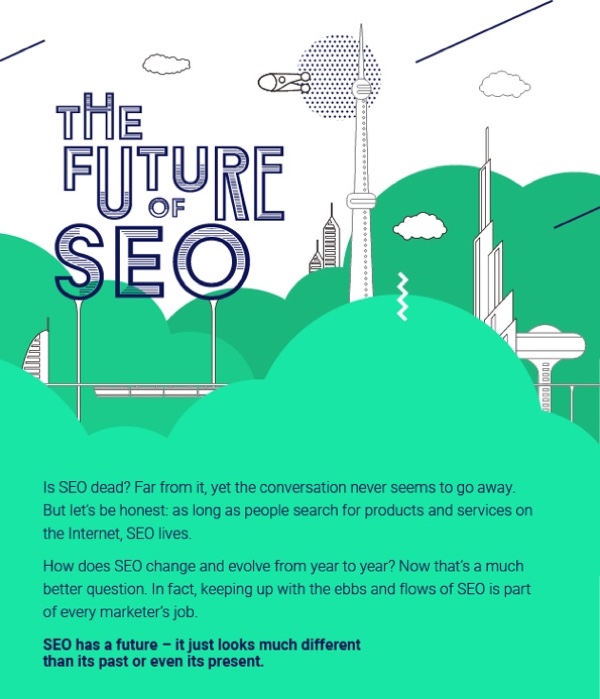
Think about the last time you wanted to try a new restaurant or store. Did you search for its location on the Internet? Did you read reviews and look for social media posts discussing the quality of the food or product?
If you did any of these things, you are living proof SEO is alive and well. SEO may not be the same kind of strategy it was five or even two years ago, but it has evolved along with the rest of the digital landscape.
The question isn’t whether SEO is dead or alive, but instead, are you prepared for its role in future marketing campaigns?
As we usually say, don’t just take our word for it; we’re right, but we have proof! According to a recent survey, 96% of marketers use SEO to provide informational and educational content to their audience. This isn’t surprising, but we do feel bad for the other 4% because, well, what exactly are they doing?
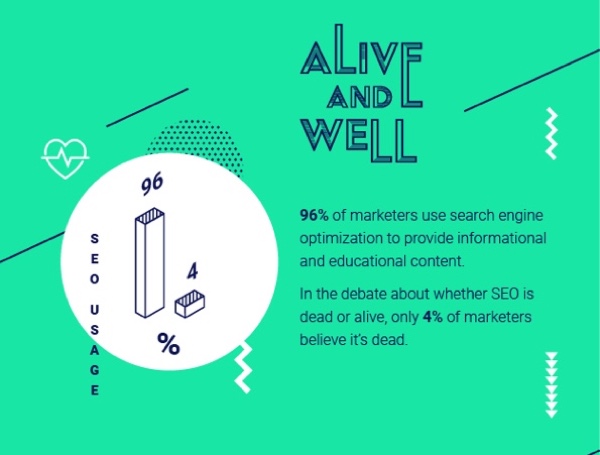 Given the lopsided numbers, why is there still a debate? We suspect – and now we enter the realm of conjecture – that because SEO has changed so drastically we’ve started to call it something else (like content or social media marketing). The fact SEO has evolved into a more cohesive tactic that not only combines with, but requires, other tactics to succeed shouldn’t propagate rumours of its demise. Yet here we are.
Given the lopsided numbers, why is there still a debate? We suspect – and now we enter the realm of conjecture – that because SEO has changed so drastically we’ve started to call it something else (like content or social media marketing). The fact SEO has evolved into a more cohesive tactic that not only combines with, but requires, other tactics to succeed shouldn’t propagate rumours of its demise. Yet here we are.
Don’t believe any of it: SEO is healthy and should be part of every digital marketing strategy.
At one point in its history, SEO was all about the end result: help a specific page rank #1 in the SERPs for a certain keyword or keywords, no matter what. The process was non-existent; it was the digital world’s equivalent to the Wild Wild West era – there were no rules.
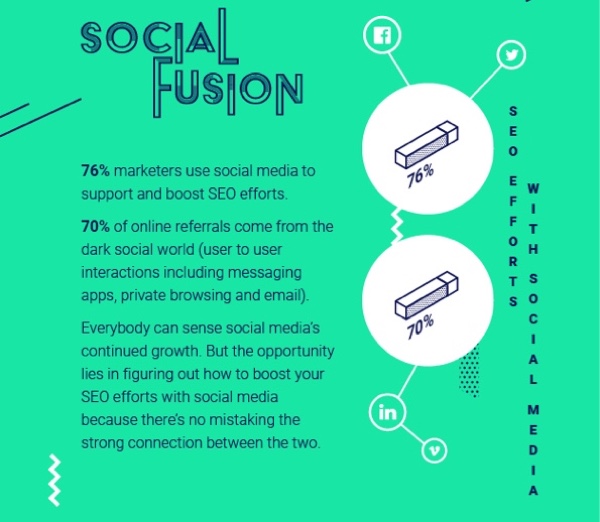
Now, SEO is much more process driven, which means it works in tandem with and often relies on other digital tactics. In fact, 76% marketers use social media to support and boost SEO efforts. Five years ago, social media wasn’t considered to have an impact on SEO, but as we’ve said, things have changed for the better. Digital marketing isn’t about one tactic anymore, it requires seamlessly fusing multiple tactics into one cohesive strategy.
The “SEO is dead” camp often cites the staggering mobile app usage stats as the death knell of browsers and SERPs. To this we say: not so fast!
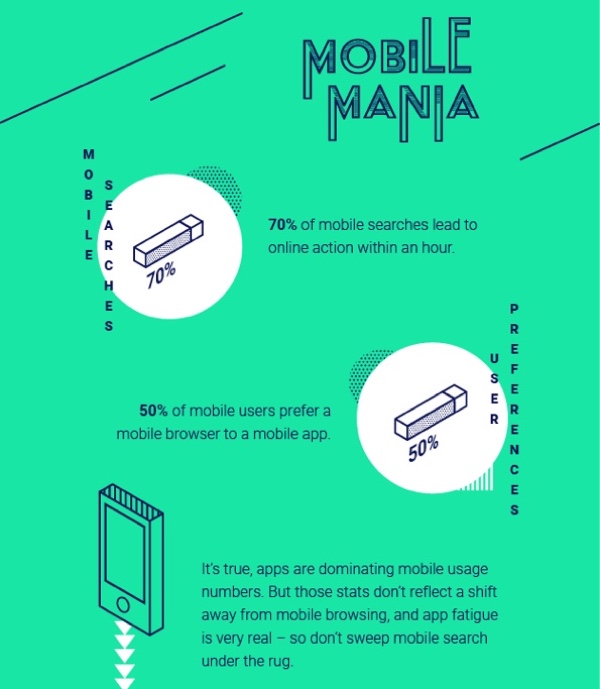
70% of mobile searches lead to online action within an hour. With that kind of conversion rate, who would abandon SEO? Not us (or anybody who listens to us)!
Apps are undeniably popular, and with good reason. We’ve all got our favorite apps that help us accomplish various goals or make us more efficient. But in terms of searching for things we need, the stats show 50% of mobile users prefer a mobile browser to a mobile app. Apps aren’t going anywhere, but neither is SEO!
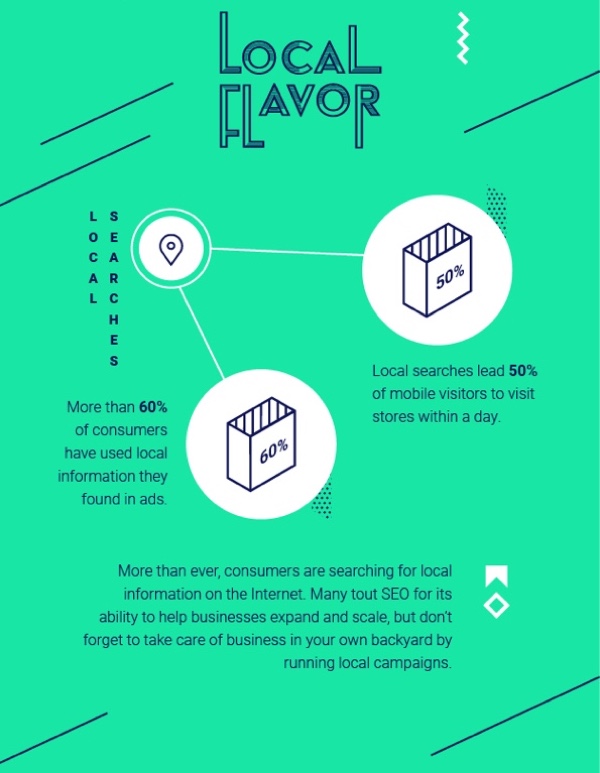 The one area in which SEO is thriving is local. Local searches lead 50% of mobile visitors to visit stores within a day. Again, this is a crazy high conversion rate! On top of that, more than 60% of consumers have used local information they found in ads.
The one area in which SEO is thriving is local. Local searches lead 50% of mobile visitors to visit stores within a day. Again, this is a crazy high conversion rate! On top of that, more than 60% of consumers have used local information they found in ads.
Part of the reason SEO flourished in the first place is that it allowed businesses to connect to a global audience. While a reach that spans the globe is still an important part of SEO, consumers’ growing dependence on search engines for local information is a huge reason why, as we’ve said a few times now, SEO has a firm place in the marketing campaigns of the foreseeable future.
That’s it for this month’s infographic summary, but come back in September to see what we create next. Here’s the full infographic, for your sharing pleasure:

Manténgase Informado